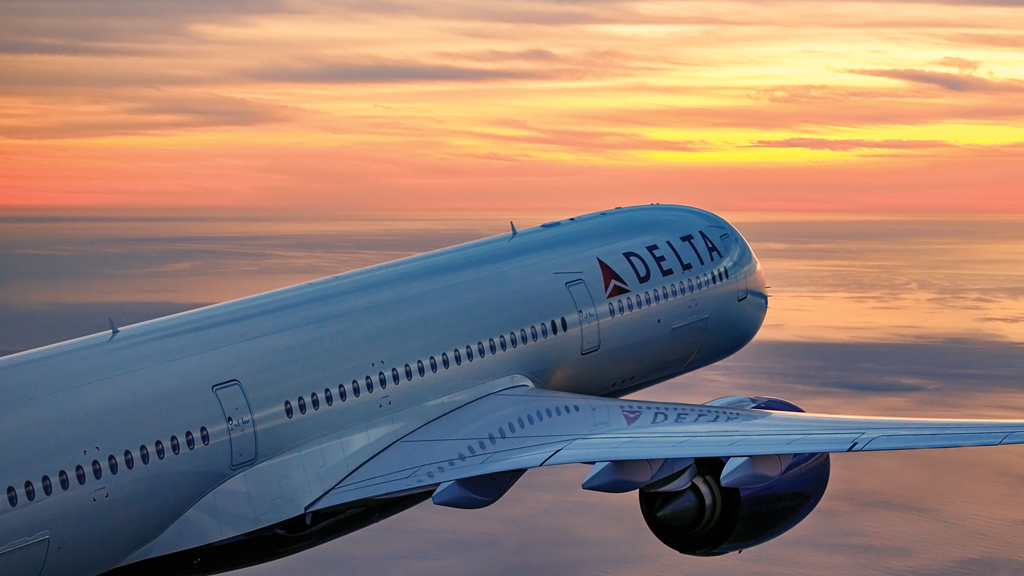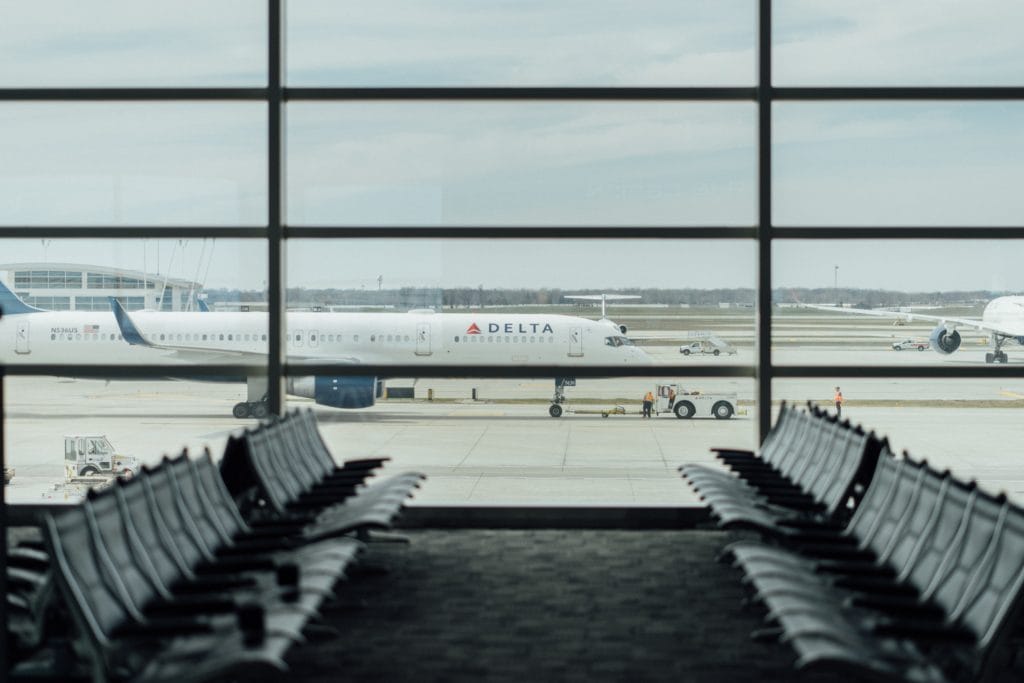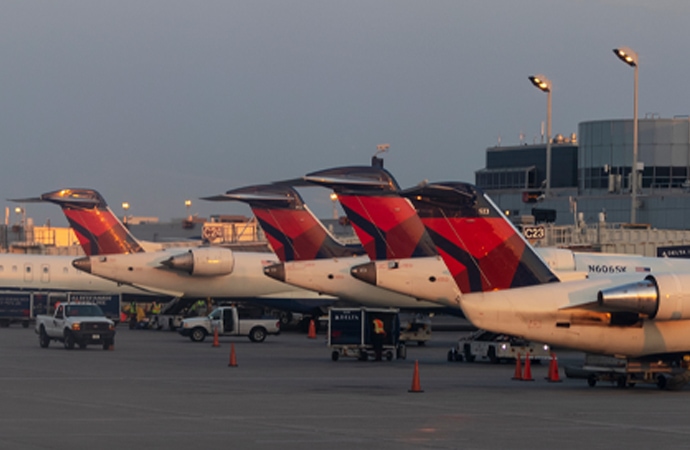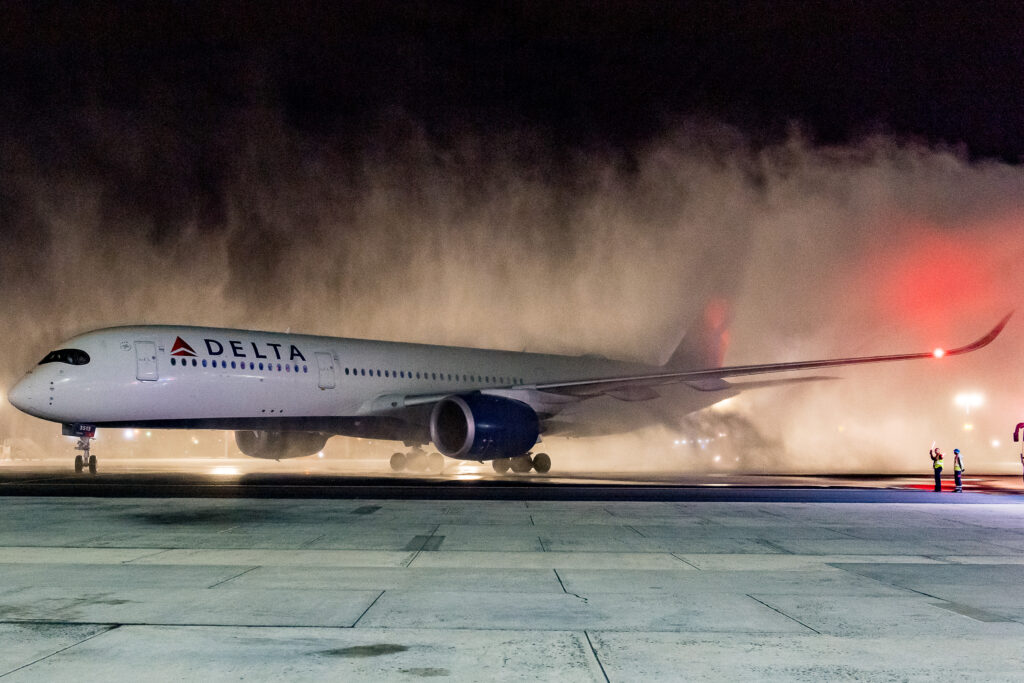Delta’s $1 Billion Carbon Neutrality Pledge Challenged in Lawsuit
Claims that Delta is relying on ineffective carbon offsets to reach its carbon neutrality goals have been dismissed by the Atlanta-based carrier
by Lauren Smith
June 2, 2023

Photo: Delta Air Lines, Airbus A350-900. Courtesy of Delta.
Delta’s $1 billion pledge to become the world’s “first carbon-neutral airline” relies on ineffective carbon offsets and is therefore false and misleading, a new consumer class action lawsuit alleges. Delta has dismissed the suit as “without legal merit.”
The legal action, filed in California on Tuesday, concerns claims Delta has made about its decarbonization efforts in advertisements, LinkedIn posts, in-flight napkins, and statements by executives.
Delta announced in February 2020 that it would spend $1 billion over the next decade to mitigate all greenhouse gas emissions from its world business and has since described itself as the world’s “first carbon-neutral airline.”

Photo: Courtesy of Hanson Lu / Unsplash
To decarbonize, Delta pledged to improve aircraft efficiency and reduce its use of jet fuel but also to offset the emissions it does cause by investing in carbon removal programs, such as rainforest and grassland conservation, wetland restoration, and marine and soil capture. Delta has purchased carbon credits from a range of projects around the world, including wind and solar energy installations in India and an Indonesian swamp forest.
However, these carbon credits are purchased from an unregulated market, are grounded in junk science, and ultimately do little to nothing to stop global heating, the class action lawsuit alleges, citing evidence from scientists and journalists.
The plaintiff Glendale, California resident Mayanna Berrin, argues that the benefits from Delta’s carbon offsets are likely to be temporary and that the projects the airline supported would have happened without Delta’s investment.
But by making these decarbonization claims, the airline was able to command a larger share of the market and charge higher ticket prices, the lawsuit says. Some consumers would have bought tickets on Delta believing they weren’t having an impact on the environment. Berrin says she was one of these customers.

Delta Air Lines at Minneapolis-St. Paul International Airport / Photo: Kate Scott/Shutterstock
“I felt comfortable paying more because I was neutralizing when I needed to travel for work or to see my family,” she told the Associated Press. “They can’t just claim neutrality if that’s not factually accurate.”
The lawsuit claims to act for all California residents who flew with Delta after March 2020.
Berrin’s attorney Jonathan Haderlein says her case is one of just a few to leverage U.S. consumer protection law against cases of greenwashing and the first to target a major airline.
He said the voluntary carbon offset market is “replete with severe methodological errors” and that it’s “reckless” for a company to ground its decarbonization efforts and ESG (environmental, social, and governance) strategy on the purchase of these offsets. But by making these claims, Delta is reaping benefits on the market.

Photo: Delta, Airbus A350-900. Courtesy of Delta Air Lines.
“The language carbon neutral is so provocative,” said Krikor Kouyoumdjian, another partner at the law firm bringing the case. “When companies say: ‘Don’t worry about our emissions, they’re sorted,’ they are communicating complacency. They are letting consumers pay to feel better and not have to worry about the impact of their consumption. But that is counterfactual to reality. It is not something that you can pay away.”
The firm wants Delta to axe its carbon neutrality claim and be honest to consumers about the pollution and carbon emissions it causes.
Delta disputes the claims in the lawsuit, saying its decarbonization strategy moved beyond using carbon offsets after March 2022.
A spokesperson for the airline rebuts this lawsuit is “without legal merit.”
“Delta is a vigorous advocate for more sustainable aviation, adopting industry-leading climate goals as we work towards achieving net-zero carbon emissions by 2050.”
The spokesperson adds, “Delta committed to carbon neutrality in March 2020, and since 31 March 2022, has fully transitioned its focus away from carbon offsets toward decarbonization of our operations, focusing our efforts on investing in sustainable aviation fuel, renewing our fleet for more fuel-efficient aircraft, and implementing operational efficiencies.”




